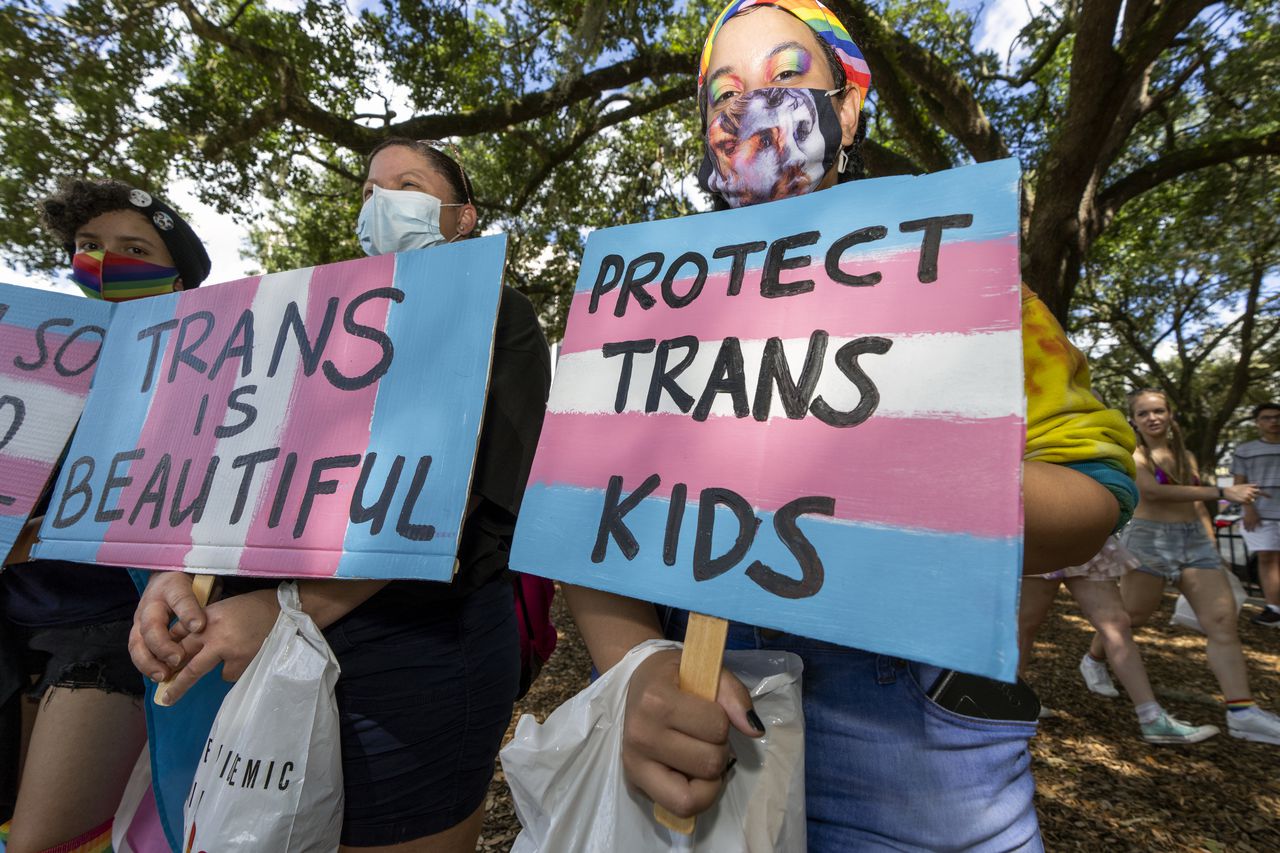Federal judge temporarily blocks Florida law banning gender-affirming care for transgender minors
A federal judge temporarily blocked parts of a Florida law banning gender-affirming care for transgender minors, a move LGBTQ+ advocates are hailing as a “much-needed win.”
U.S. District Judge Robert Hinkle issued a preliminary injunction on Tuesday, forbidding the state from enforcing its regulatory and statutory trans care bans for minors.
“Gender identity is real. The record makes this clear,” he said, adding that a medical defendant as a witness for the state agreed too.
The families of three transgender children sued the state in March after Florida’s Board of Medicine and Board of Osteopathic Medicine adopted rules barring the prescription of puberty blockers and hormones for transgender children. They argued that these restrictions violated their “constitutionally protected rights to make medical decisions” for their kids.
The lawsuit also challenged portions of SB 254 – the bill signed into law by Gov. DeSantis in May – that specifically bans gender-affirming care and the criminal and disciplinary consequences for those who provide such care.
Hinkle’s ruling affirms some of the plaintiffs’ claims. He states that Florida’s bans are likely unconstitutional, emphasizing that the state’s anti-transgender motives “targeted at a discrete and insular minority.” LGBTQ rights advocates see the ruling as a major victory when it comes to increasing legal safeguards against discrimination.
“Those of us on the ground in Florida that have been fighting this battle, and all my trans clients who have been attacked left and right relentlessly, this was a much needed win,” said Simone Chriss, director of Transgender Rights Initiative at the public interest law firm Southern Legal Counsel. “And I think [it] gave everyone the ability to finally take a deep breath.”
Hinkle, an appointee of former President Bill Clinton, noted individuals who hold the misconception that gender identity is a voluntary choice also “tend to disapprove all things transgender and so oppose medical care that supports a person’s transgender existence.”
He found that banning treatment for minors disregards the potential risks patients may encounter.
“Florida has adopted a statute and rules that prohibit these treatments even when medically appropriate,” Hinkle said. “If these treatments are prohibited, many patients will suffer needlessly.”
Chriss thinks the judge’s ruling could also affect other restrictions on gender-affirming care in general.
Hinkle recently completed a bench trial for a similar case, Dekker v. Weida, challenging Florida’s effort to ban and restrict Medicaid coverage for gender-affirming medical care. He relied on his preliminary injunction to inform his ruling in that case.
“And I’m so grateful,” said Chriss. “I’m excited to see his order.”
